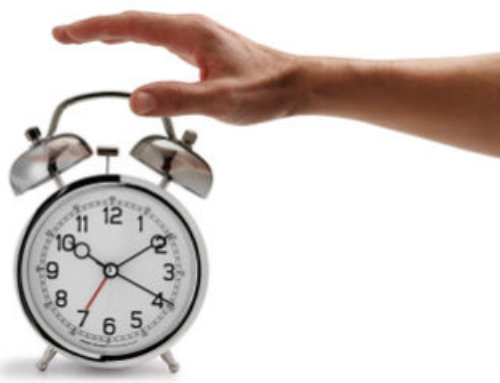Whether it’s to avoid partners who steal the covers and toss and turn all night, or those who consistently rattle the room with loud snoring, many Americans are opting for a “sleep divorce” to help improve their nightly sleep. According to a recent American Academy of Sleep Medicine (AASM) survey, more than one-third of people say they occasionally or consistently sleep in another room to accommodate a bed partner. Men are most likely to hit the sofa or guest room, with almost half of males (45%) reporting they occasionally or consistently sleep in another room, compared with just one-fourth (25%) of women.
“We know that poor sleep can worsen your mood, and those who are sleep deprived are more likely to argue with their partners. There may be some resentment toward the person causing the sleep disruption which can negatively impact relationships,” said Dr. Seema Khosla, pulmonologist and spokesperson for the AASM. “Getting a good night’s sleep is important for both health and happiness, so it’s no surprise that some couples choose to sleep apart for their overall well-being.”
Getting the right amount of healthy sleep is important for relationships. Studies have shown that those in relationships who consistently experience poor sleep are more likely to engage in conflict with their partners and that sleep loss decreases levels of empathetic accuracy — meaning those who do not have enough sleep may be less able to understand or interpret their partners’ feelings.
Almost half (43%) of millennials occasionally or consistently sleep in another room to accommodate a bed partner, followed by one-third (33%) of those in Generation X, 28% of those in Generation Z and 22% of baby boomers.
“Although the term ‘sleep divorce’ seems harsh, it really just means that people are prioritizing sleep and moving into a separate room at night when needed,” said Khosla. “However, if it is one partner’s loud snoring that is leading to separate sleep spaces, then you should encourage that partner to talk to a doctor about obstructive sleep apnea. This applies to both men and women who may snore.”
Loud and frequent snoring is not just a nuisance; it is a common symptom of sleep apnea. While not everyone who snores has this sleep illness, snoring is a warning sign that should be taken seriously. When snoring is paired with choking, gasping or silent breathing pauses during sleep, it’s a strong indicator of sleep apnea.
Other common symptoms of sleep apnea include fatigue or daytime sleepiness, unrefreshing sleep, insomnia, morning headaches, nocturia (waking during the night to go to the bathroom), difficulty concentrating, memory loss, decreased sexual desire, irritability, and difficulty staying awake while watching TV or driving. Excess body weight is a key risk factor for sleep apnea.
For more information, or to find a local AASM-accredited sleep center, please visit sleepeduation.org.
View 2023 AASM Sleep Prioritization Survey results here.
###
About the Survey
The American Academy of Sleep Medicine commissioned an online survey of 2,005 adults in the U.S. The overall margin of error fell within +/- 2 percentage points with a confidence interval of 95 percent. Fieldwork took place between March 24-29, 2023. Atomik Research is an independent market research agency.
About the American Academy of Sleep Medicine
Established in 1975, the AASM advances sleep care and enhances sleep health to improve lives. The AASM has a combined membership of 12,000 accredited sleep centers and individuals, including physicians, scientists and other health care professionals who care for patients with sleep disorders. As the leader in the sleep field, the AASM sets standards and promotes excellence in sleep medicine health care, education and research.









